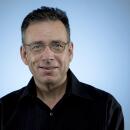TV Skeptic: The medium and Oz
This article was originally on a blog post platform and may be missing photos, graphics or links. See About archive blog posts.
On an episode of ‘The Dr. Oz Show’ (5 p.m. KTTV) this week, the good doctor stepped away from his usual attention to the science and practice of medicine and instead welcomed the self-proclaimed psychic medium John Edward. The pair discussed whether communicating with the dead may be therapeutic.
In this age of modern medicine, Dr. Mehmet Oz, arguably one of the country’s most influential doctors, seemed to be promoting a medieval therapy for today’s patients. The condition Edward claimed to treat is grief.
“Grief is an energetic form of cancer,” Edward told the TV audience. “If it is not treated it will metastasize, and it will reach out and grow into other aspects of a person’s life.”
And one therapy for this condition? Communication with the deceased through a medium can be “extremely therapuetic.”
Dr. Oz then called upon Katherine C. Nordal, executive director for the American Psychological Assn., who immediately disputed Edward’s description of grief.
“Grief is not a disease,” she said, rather sternly, “It’s not a disorder and it doesn’t need a pill and often times normal grief doesn’t even need counseling.”
But any hope the skeptic may have had that this noted authority would raise critical questions about the practice of visiting psychics and mediums for therapy were soon dashed. The show jumped to the next segment when Edward began his process, which he referred to as “readings.”
In a letter to producers of ‘The Dr. Oz’ show Nordal said, ‘I provided very balanced responses to Dr. Oz’s questions during the show’s taping, however, the editing of my responses did not capture my full comments or give viewers an accurate portrayal of my professional view on John Edward’s methods. Instead, it seems that ‘The Doctor Oz’ show intentionally edited my responses in a way that gave the appearance of my endorsement of Edward’s methods as a legitimate intervention.’
For his first reading, Edward called on a young woman, who asked a question about how strenuous it might be for those who have died to communicate with the living. Edward answered by speaking about the woman’s deceased mother, and amazed the studio audience with details that seemed to have come from beyond the grave. No one seemed to think it at all suspicious that the two had a previous connection -- Edward had done a reading for the girl’s mother years before.
His next victim (patient?) was a middle-aged man who rose to his feet when Edward suggested someone had lost a son. As the reading continued, Edward informed the grief-stricken parent that the car accident that claimed his son’s life was in fact a suicide.
‘I’ve never known that he committed suicide for sure,’ said the grieving father, “but I believe it.’
This father seemed able to cope with that information, but I’m not sure every grieving parent would take that kind of news as well. What’s particularly noteworthy is that it has no basis in fact or truth.
Edward has been accused over the years of obtaining personal information before doing readings, and using deceptive editing on his TV show. In the media he’s been roundly skewered on shows like “South Park” and “Penn & Teller.”
Yet Dr. Oz seemed to buy into Edward’s “therapy.” It should go without saying that Edward’s ability to communicate with the dead has never been tested under the rigors and standards of the scientific method.
But the therapeutic value of visiting a psychic or medium to communicate with a deceased loved ones has never passed the standard of scientific scrutiny either. Which makes one wonder why Dr. Oz was so entirely credulous. Truly a doctor, particularly one with such wide influence, should know better.
After this episode the critically thinking skeptic may be left wondering, what’s next? Voodoo dolls? Oujia boards? Blood-letting at the local barber?
-- Ed Stockly
